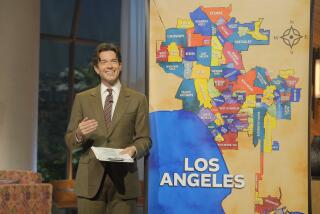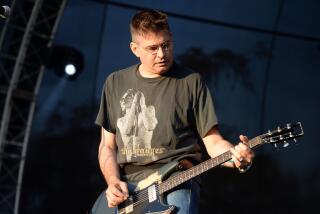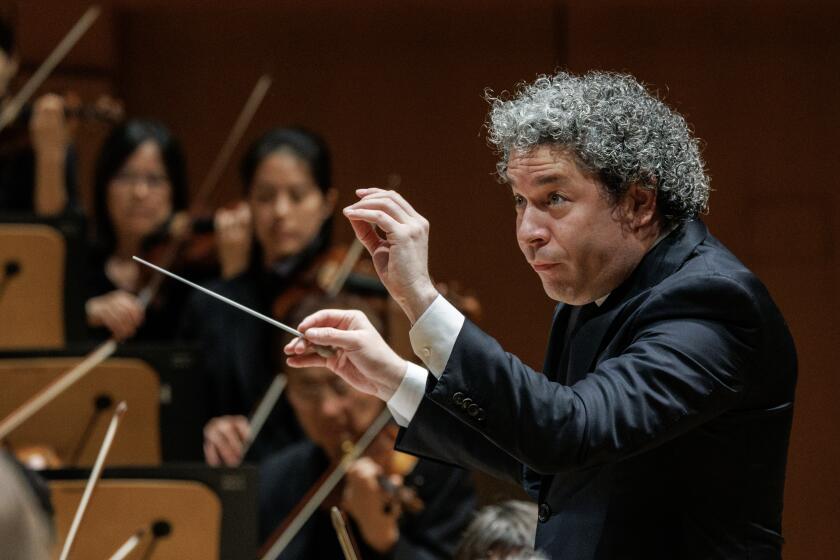Beethoven, Liszt on Program for Arrau’s Recital
Among the keyboard giants of this century who are still performing, Claudio Arrau is the undisputed senior statesman. The Chilean-born pianist, who celebrated his 85th birthday last week at his Long Island home, will perform a solo recital Sunday night at the Civic Theatre. His local appearance will make up for the recital he was scheduled to play in December but canceled due to an illness.
In the 65 years since he made his American debut with the Boston Symphony under Pierre Monteux in 1923, Arrau has observed a maturing in the attitudes of audiences in this country.
“There has been a tremendous improvement, especially in the last 20 years,” Arrau said in a recent telephone interview. “It is no longer a risk to play certain programs, notably Mozart and Schubert. In part this has stemmed from the many recordings of piano repertory which have made the listeners’ appreciation more discriminating. And I have noticed since the 1960s a tremendous increase in the number of young people taking in classical music.”
Arrau’s observations are not based on a mere smattering of performances. The octogenarian plays between 50 and 60 concerts annually, in addition to maintaining a recording schedule that shows little sign of abating. He recently recorded another cycle of the complete Beethoven concertos for Philips records with the Dresden State Orchestra under Colin Davis, and his set of 12 Beethoven sonatas is his third foray into that encyclopedic oeuvre .
Although his interpretation of the German classical repertory has changed gradually over his career, the current rage of performing on period instruments--the fortepianos like those Mozart and Beethoven knew--does not interest him at all.
“I can understand when one plays Haydn on the harpsichord,” Arrau said. “The harpsichord had reached a great level of perfection at the time he composed. But I don’t understand playing an early fortepiano. Those instruments were just beginning to become something (in Beethoven’s time). I never saw the sense of using an inferior piano.”
Arrau himself has never played on either an historic fortepiano or a contemporary copy: “I would have liked to have done some harpsichord playing, however. I just never had the time. I adored listening to Landowska play.”
In San Diego Arrau will play two Beethoven sonatas and Liszt’s “Jeux d’Eaux,” “Sonetto del Petrarca No. 104” and the fantasia “Apres un Lecture du Dante.” But if Arrau is associated with traditional piano repertory, it has not always been the case.
“I was among the first to have the courage to play Schoenberg’s Op. 11 in public some 50 years ago,” he recalled. “I am very much interested in avant-garde music.” Arrau said he has high regard for contemporary operas he has seen by Bernd Zimmermann and Luciano Berio.
“The piano music of Stockhausen and other younger composers is filled with new and different techniques,” he said. “I would like to perform (today’s) avant garde music if I had the time to master the special techniques of playing it.”
One new keyboard challenge that does engage him at this stage in life is plumbing the depths of late Schubert.
“Thirty or 40 years ago, it used to be thought that Schubert was too intimate to be played in concert,” Arrau said. “Now, playing his sonatas is considered one of the great things to do, although performing them well is much more difficult than playing Beethoven.”
Arrau is also engaged in an ambitious new home video project. “The sound is quite marvelous,” he said. “The first tape we did was with the Philadelphia Orchestra with Riccardo Muti. I played the Beethoven Fourth Concerto.”
Other tapes will capture Arrau in solo recital, preserving both the audio and visual aspects of the pianist’s performances.
More to Read
The biggest entertainment stories
Get our big stories about Hollywood, film, television, music, arts, culture and more right in your inbox as soon as they publish.
You may occasionally receive promotional content from the Los Angeles Times.






